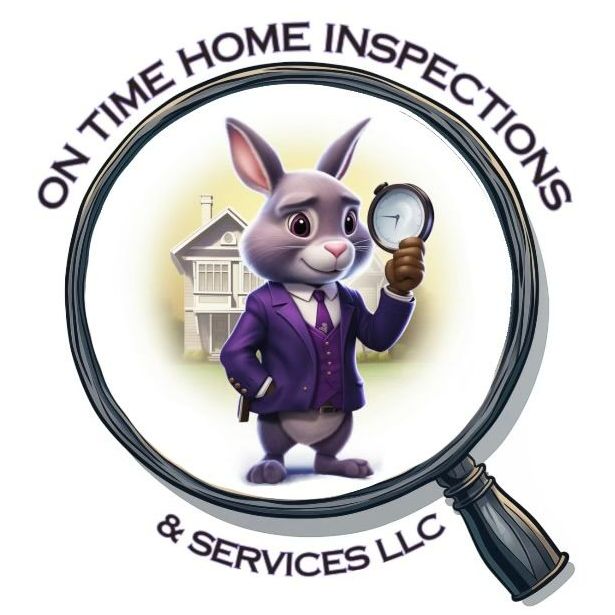Frequently Asked Questions Answered by Our Home Inspection Experts

On Time Home Inspection and Services in Johnson City, New York, is your best ally for home inspections. To ensure you have all your questions answered, we’ve created the most common FAQ&A, but it doesn’t stop there! If you didn’t find what you need, call us now!
On Time Home Inspection and Services in Johnson City, New York, is your best ally for home inspections. To ensure you have all your questions answered, we’ve created the most common FAQ&A, but it doesn’t stop there! If you didn’t find what you need, call us now!
-
Home Inspection
- What is a home inspection, and why is it important? A home inspection is a detailed assessment of a property's condition to identify any existing or potential issues. It's crucial as it helps you make informed decisions about your investment and ensures the safety and functionality of your home.
- What does a home inspector look for during an inspection? A home inspector examines various aspects of your property, including the foundation, plumbing, roof, electrical systems, HVAC, appliances, structural components, and more. They focus on identifying defects, safety concerns, and maintenance needs.
- How long does a home inspection typically take? The duration of a home inspection depends on your property's size, age, and condition. On average, it takes around 2-3 hours. Larger or older properties might take longer.
- Can I attend the home inspection? Absolutely! Your presence during the inspection is encouraged. It provides you with firsthand insights into your property's condition and allows you to ask questions on the spot.
- What should I do if the home inspection reveals issues with the property? If issues are found, don't panic. Discuss the findings with your inspector to gain a clear understanding. You may negotiate repairs with the seller or adjust your offer accordingly. Your inspector's insights guide your decisions.
- How often should I get a home inspection? While there's no one-size-fits-all answer, getting a comprehensive home inspection before purchasing a property is recommended. Regular inspections every few years or before major renovations help ensure your home's ongoing health.
-
Mitigation Systems
- What is a mitigation system? A mitigation system is designed to reduce and manage specific indoor air pollutants, such as radon gas. It employs various techniques to prevent the infiltration of harmful substances into your living spaces.
- When is a mitigation system necessary? A mitigation system becomes necessary when elevated levels of indoor air pollutants, like radon, are detected in your home.
- What types of mitigation systems are available? Several mitigation systems are available, each tailored to different pollutants and home configurations. Examples include sub-slab depressurization, sump hole suction, and block wall suction.
- How does a mitigation system work? Mitigation systems use methods like venting and pressurization to redirect indoor air pollutants away from living areas. These systems create pressure differentials that prevent contaminants from seeping into your home.
- How much does a mitigation system cost? The cost of a mitigation system varies depending on factors like the type of system, the complexity of installation, and your home's layout. It's an investment in your family's health and well-being.
- Can I install a mitigation system myself, or do I need a professional? While some mitigation system components seem straightforward, seeking professional installation is recommended. A certified expert ensures proper design, installation, and functionality, giving you peace of mind.
-
Radon Inspection
- What is radon, and why is it dangerous? Radon is a colorless, odorless, and tasteless radioactive gas that occurs naturally in soil and rock. It can seep into your home and accumulate, leading to serious health.
- How is radon detected? Radon detection involves specialized testing methods. Short-term tests can provide a quick snapshot, while long-term tests offer a more accurate assessment of radon levels in your home.
- How long does a radon inspection take? A radon inspection's duration depends on the testing method used. Short-term tests take a few days, while long-term tests can extend from several months to a year.
- What levels of radon are considered safe? The Environmental Protection Agency (EPA) recommends action if radon levels exceed 4 picocuries per liter (pCi/L). Lowering radon concentrations through mitigation is crucial for your family's health.
- How is radon mitigated? Radon mitigation involves techniques like sub-slab depressurization and ventilation. A mitigation professional will design and install a system that redirects radon gas away from your living spaces.
- How often should I test for radon? Radon levels can fluctuate over time, so regular testing is important. It's recommended to test every two years or when significant structural changes occur in your home.
-
Well Shocking
- What is well shocking, and why is it necessary? Well shocking, also known as well disinfection, is the process of treating your well water with a disinfectant solution to eliminate harmful bacteria, viruses, and other contaminants. It's necessary to maintain clean and safe water for your household.
- How often should I shock my well? The frequency of well shocking depends on factors like water quality, usage, and potential contamination sources. Generally, it's recommended every one to three years.
- What are the benefits of well shocking? Well shocking ensures your water supply remains free from harmful microorganisms. It helps improve water quality, taste, and odor, safeguarding your family's health.
- How is well shocking done? Well shocking involves introducing a disinfectant, like chlorine, into your well. The process requires flushing your plumbing system to distribute the disinfectant throughout your home's water lines.
- Can I do well shocking myself, or do I need a professional? While some homeowners attempt well shocking themselves, seeking professional assistance is advisable. Experts have the knowledge, equipment, and experience to ensure effective disinfection and prevent potential health risks.
-
Air Quality Testing
- What is air quality testing, and why is it important? Air quality testing is the process of evaluating the composition of indoor air to identify pollutants and contaminants. It's crucial to ensure the air you breathe is safe and free from harmful substances that can affect your health.
- What types of pollutants can be found in indoor air? Indoor air can contain various contaminants, including dust, mold spores, pollen, pet dander, volatile organic compounds (VOCs), tobacco smoke, and more.
- How is air quality testing done? Air quality testing involves collecting air samples from various areas of your home and analyzing them for pollutants. Methods include using specialized equipment to measure particulate matter, VOCs, carbon monoxide, and other contaminants.
- How long does air quality testing take? The duration of air quality testing varies based on the type of contaminants being tested and the size of your home. Generally, it can take a few hours to a full day.
- What are the health risks associated with poor indoor air quality? Poor indoor air quality can lead to respiratory issues, allergies, headaches, fatigue, and worsening of existing health conditions. Long-term exposure to indoor pollutants may contribute to chronic health problems.
- How can I improve my indoor air quality? To enhance indoor air quality, consider proper ventilation, using air purifiers, maintaining a clean environment, managing humidity levels, and reducing sources of pollutants.
-
Water Testing
- Why is water testing important? Water testing is crucial to ensure the safety and quality of your drinking water. It helps identify any contaminants or impurities that may be present and ensures your water is safe for consumption.
- What types of contaminants can be found in water? Water can contain various contaminants, including bacteria, viruses, heavy metals (like lead and mercury), pesticides, nitrates, chlorine, and other pollutants that can affect your health.
- How is water testing done? Water testing involves collecting samples from your water source and analyzing them in a laboratory. Different tests are conducted to identify specific contaminants and assess the overall quality of the water.
- How long does water testing take? The time required for water testing varies depending on the specific tests. Generally, it takes a few days to a couple of weeks to receive the results.
- What should I do if my water test results show contaminants? If your water test reveals contaminants above safe levels, it's essential to take corrective measures. This may involve installing water treatment systems or filters to remove the pollutants and ensure safe drinking water.
- How often should I test my water? It's recommended to test your water annually for common contaminants. However, if you notice changes in taste, odor, or color, or if there are changes in your water source, more frequent testing might be necessary.
-
Septic Dye Testing
- What is septic dye testing, and why is it important? Septic dye testing involves introducing non-toxic dye into your plumbing system to simulate wastewater flow. It helps assess the efficiency of your septic system, identify leaks, and ensure proper functioning.
- How is septic dye testing done? During septic dye testing, a harmless dye is introduced into the plumbing system, usually through a toilet or drain. If the dye shows up in areas it shouldn't, it indicates issues like leaks or septic system backups.
- What are the benefits of septic dye testing? Septic dye testing can uncover hidden problems in your septic system that may not be visible otherwise. It helps prevent potential contamination of groundwater and surrounding areas due to septic system malfunctions.
- How long does septic dye testing take? The testing process typically takes a few hours. The dye is introduced, and its movement is monitored to assess the flow within the plumbing system.
- What should I do if the septic dye test reveals issues with my system? If the test reveals problems, it's essential to address them promptly. Contact a professional to assess the situation and recommend the necessary repairs or maintenance.
- How often should I get a septic dye test? Regular septic dye testing is recommended, especially if you suspect a problem or are purchasing a new property with a septic system. It's also advisable if you've recently had repairs or alterations to your plumbing system.
Contact our experts at
607-752-0020
for experienced home inspection solutions.




